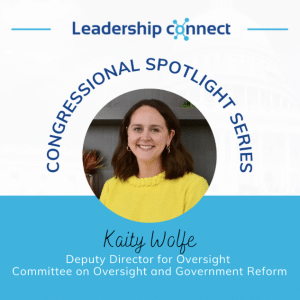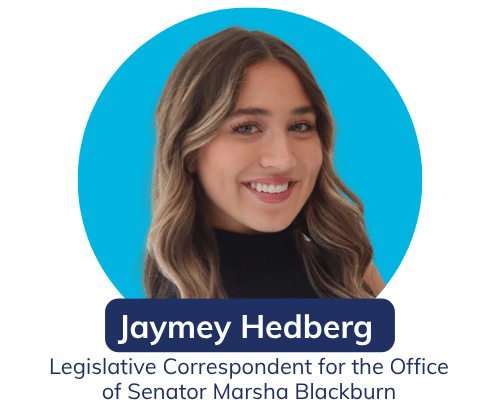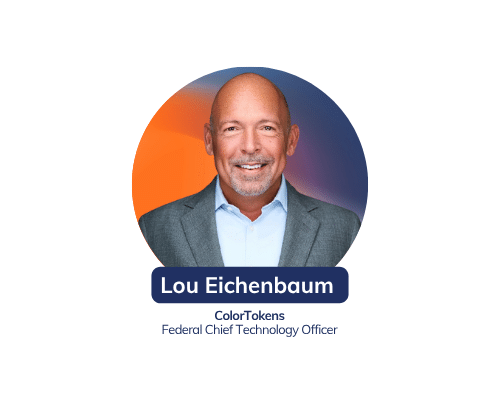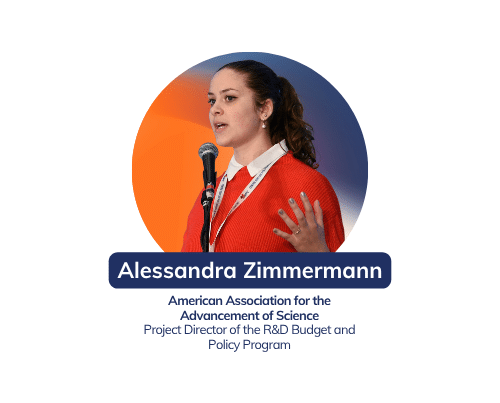The Art of Oversight: Strategies for Effective Investigations

This week, we spoke to Kaity Wolfe, Deputy Director for Oversight for the Committee on Oversight and Government Reform.
Can you walk us through your career path and the steps that led you to your role as a Committee Deputy Director for Oversight?
My interests in Congressional oversight and investigations started when I was a junior staffer in Senator Chuck Grassley’s office – he has a thorough track record of standing up for whistleblower protections and championing government transparency. From there, I genuinely got lucky that the representative from my home district, James Comer, needed staff and got placed on the House Oversight Committee as a freshman member. After being in Congressman Comer’s office for a few years, I took a leap and accepted a job working for the Special Inspector General for Afghanistan Reconstruction (SIGAR). In this role, I was able to see firsthand how auditors, investigators, and inspectors work to protect taxpayer dollars. This experience helped me gain substantial knowledge as to how the Inspector General community works, and how to conduct effective oversight. My experience at SIGAR set me up perfectly for a job as a Congressional investigator when Congressman Comer became Chairman of the House Oversight Committee. I was recently promoted to be Deputy Director of Oversight, and I am looking forward to using my experiences to help others learn how to conduct Congressional investigations.
Which policy areas or legislative issues are you most passionate about within the committee’s scope, and how do you stay informed and engaged in those specific areas?
One thing I love about being on the House Oversight Committee is that our jurisdiction is so broad. When your oversight mandate is, “any matter, any time” per House rules, that allows for a lot of fun. However, since being on the Committee I have served as the lead staffer on national security and foreign affairs issues. Aside from just being a news junky, I really try to keep up with certain military and foreign affairs publications that dissect issues directly with servicemembers or those in the foreign service community to get firsthand accounts of what is happening on the ground. I try to get away from my desk as much as I can as well by attending industry related workshops and conferences where I can meet national security professionals and hear what issues they are facing.
Can you describe a challenging or rewarding project you’ve worked on as a committee staffer that significantly impacted your professional growth? How did you navigate the challenges, and what did you learn from the experience?
Leading Congressional investigations has been a challenging yet rewarding process. Most Congressional investigations require complex legal and procedural hurdles, managing competing political interests and ensuring the findings are both credible and thorough. It’s an immense responsibility – not only because of the subject matter but also because the investigations typically have real-world implications for oversight and policy. Leading Congressional investigations has strengthened my ability to think strategically under pressure, build coalitions, and communicate complex issues in a way that drives action.
In your role as Deputy Director for Oversight, strong leadership is essential for keeping the team motivated and focused on the committee’s agenda, especially when navigating numerous issues. Could you share some strategies or techniques you employ to inspire and motivate your team, ensuring that everyone remains committed to achieving the committee’s objectives despite the challenges they may face?
One of the biggest challenges leaders on Capitol Hill have is keeping their team connected to the overall objectives because, frankly, sometimes those objectives are constantly shifting with the news or political climate. In such a fast-paced environment, I prioritize keeping my team motivated by ensuring they understand how their work directly contributes to the committee’s broader mission. To achieve this, I emphasize clear and consistent communication – and that goes both ways. I hold regular check-ins to ensure everyone understands evolving priorities, but I also try to create an open environment where team members feel comfortable providing feedback and raising concerns. Another key strategy is empowerment. I want my team to feel ownership over their work, knowing that their expertise and judgement are valued. I encourage them to take the initiative, think creatively, and propose solutions rather than just identifying problems. I also focus on recognition. The work can be demanding, and I make it a point to acknowledge and celebrate individual and team successes – whether it’s a well-executed report, a strategic oversight hearing, or behind-the-scenes work that moves the needle on accountability.
In your view, what sets working on a congressional committee apart as a unique experience on Capitol Hill, and how do you navigate the specific challenges that come with it in your daily work?
Working on a congressional committee has provided so many opportunities to meet so many people. On any given day, you can go from grilling a Cabinet official about national security, to writing a report about wasteful spending, and then somehow end up on the phone with a whistleblower who has a story that sounds like something straight out of Hollywood. I’ve been able to engage directly with agency heads, military leaders, corporate executives, and frontline workers to gather insights and testimony. You also become a part-time expert in the most random things. One week, you’re deep-diving into procurement fraud, and the next you know way too much about the inner workings of military canteens. It keeps the job interesting – and definitely makes for great conversation starters at parties (Did you know the government once spent $1,200 on a coffee cup?) One of the biggest ways to navigate this work is to build a strong network. You don’t have to become an expert in everything – but you do need to know who to call when you’re not.
Leadership often involves guiding and mentoring others. Could you share a specific example of how you’ve supported the professional development of your team members, helping them grow in their roles and excel in their skill sets?
One of the most rewarding aspects of leadership is helping team members develop their skills and confidence. A specific example stands out is when I mentored a junior staffer who was new to congressional investigations. They were highly capable but unfamiliar with the nuances of conducting oversight, analyzing documents, and drafting reports. To help, I took a hands-on approach – walking them through the investigative process and showing them how to draft effective lines of questioning for witnesses. I also encouraged them to take the lead on smaller aspects of the investigation, providing guidance while allowing them to develop their own investigative instincts. What I learned from this experience is that investing in people – giving them both the tools and trust to take on challenges – pays off not only for their development but for the overall success of the team.
Word association, what is the first word that comes to mind for each of these?
Policy – Framework
Networking – Essential
Writing Skills – Paramount
Working on the Hill – Fun
Leadership Connect – Resourceful






